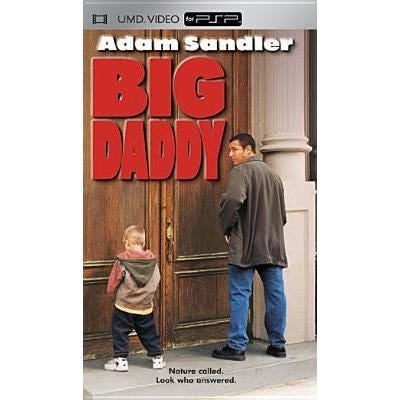Finding Unicorns: A Quick Lesson from Adam Sandler
After an exhausting week for the both of us, my wife and I plopped down on the couch at 10pm. “Find something funny to watch” was the mandate, as I pulled Netflix up. “Murder Mystery”, a Netflix movie starring Adam Sandler and Jennifer Aniston, came up and what the heck, I clicked. It was pretty much exactly what we expected — not terribly intellectual, but neither of us were in the mood to think, and it made us laugh just enough that we were generally satisfied with the movie.
But while I was watching the movie, with all apologies to Mr. Sandler, I couldn’t help but think — this guy, let’s be real, is not a terribly talented actor (at least not in the “win oscars for complicated roles” sense), nor is he particularly handsome (sorry Mr. Sandler). How has he managed to have such a lengthy and lucrative career?
And then I remembered something. Twenty years ago, in 1999, both Star Wars I, The Phantom Menace, and Big Daddy were released, and ended the year at #1 and #7 (respectively) in terms of box office success. Now, if you had asked me at the time, who would have a better career:
this guy:

Or this guy:

I don’t know about you, but if I’m being honest with myself… I would have picked Hayden Christiansen, and it wouldn’t have been close. He’s (I’m sorry again Mr. Sandler..) much more handsome, talented and starred in freaking Star Wars.
So what lesson can we learn from all of this? Simple - Adam Sandler’s success stems from his brand, and that brand is something enough people want that he has built one of the most consistent and lucrative careers in Hollywood. Ever since Big Daddy came out, whether it was Waterboy, Happy Gilmore, You Don’t Mess with the Zohan, or last Friday when I crumpled into my couch with ice cream and clicked on Murder Mystery, the audience knows exactly what it’s getting with an Adam Sandler movie because his brand is consistent, well-known, and just appealing enough since, after all, the point of a movie is to entertain and his movies are simple, but entertaining.
Why is having a clear and consistent brand so important? IMHO, the key reason is it removes friction. “What’d you do last night?” —> “Watched the new [name of actor] movie, it wasn’t bad”. This sentence works with “Adam Sandler/Jennifer Aniston”, but not so much with “Hayden Christiansen”. So not only does it allow quick/easy communication to the customer, it allows easy communications between customers, which allows easy word of mouth/virality. I distinctly remember telling several people to try Slack (and having people tell me about Pinterest) well before they became unicorns. Those companies built products/brands that people were compelled to tell their friends about from the start.
So the next time you’re looking at an angel investment, ask yourself, is this more of an Adam Sandler (clear value prop, easy-to-understand brand, lends itself to word-of-mouth virality) or more of a Hayden Christiansen-circa-1999 (brilliant performance but peaked early).